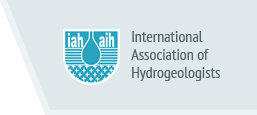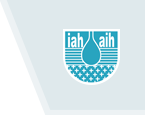Early Career Hydrogeologists’ Network Technical Meetings
All (any career stage) are welcome to this free event!
Date and Time: 5:00 to 6:30 pm, Monday 16th June 2025
Location: The University of Canterbury Club, Ilam homestead, 87 Ilam Road, Ōtautahi / Christchurch, 8041
Access: The UCC (also known as staff club) can be accessed off Ilam Road. There is plenty of bike and car parking out front. Please grab a drink at the bar and head upstairs. Presentations will commence at 5:30 pm.
RSVP
Presentations
Time: 5:30 pm
Patrick Durney (Lincoln Agritech Ltd)
Title: Modelling with a purpose
Background: Patrick Durney is a Research Scientist in our Environmental Research Group, based at Lincoln. With a robust background in hydrogeology and modelling, their work focuses on statistical and machine learning applications, unsaturated flow and transport modelling, integrated water resource management, and groundwater mounding from artificial recharge. They hold a BSc in geology, a Postgraduate Diploma in engineering geology, and a Master’s in water resource management from the University of Canterbury.
Presentation: Patrick’s presentation will outline three models and their specific uses, emphasizing that a model is a tool, not a truth machine. Each model is designed for a particular purpose and to address a specific question, not to answer every possible query we might have.
Tara Forstner (University of Canterbury)
Title: Hindcast characterization of a culturally important spring: Tracing spring source and flux in a multi-aquifer setting, Heretaunga Plains, Aotearoa, New Zealand
Background: Tara Forstner’s PhD research focuses on investigating methods for assessing the baseline (pre-European) conditions of a groundwater–surface water system incorporating indigenous records of natural conditions. Impacts on water resources are often quantified based on an assumed pre-development groundwater–surface water condition; however, baseline conditions are often constrained by lack of data as they pre-date monitoring periods. Understanding the pre-European conditions is a critical consideration when investigating impacts on water resources that affect indigenous populations.
Presentation: Groundwater-dependent ecosystems deliver essential ecological and cultural benefits but face growing threats from land use changes, climate effects, and catchment-scale developments. This study examines Te-Pakipakitanga-o-Hinetemoa, a culturally important spring and taonga on the Heretaunga Plains. Located at the edge of a productive sedimentary basin and limestone hills, the spring’s hydrology is complex, complicating assessments of climate and human impacts as well as restoration planning. Using an integrated approach—including hydrochemical, lithological, and geophysical methods—we analyse seasonal flow patterns, identify water sources, and develop a conceptual hindcast model based on historical wetland conditions. This research supports culturally informed restoration and highlights the importance of blending Western science with Indigenous knowledge in managing GDEs.






